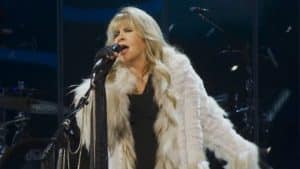5 Classic Rock Songs Banned from TV

via Marc Cossette / YouTube
Classic rock has always pushed boundaries, and sometimes, that led to songs being banned from television or radio. Whether due to controversial lyrics or misunderstood meanings, these tracks stirred debate and faced censorship. Here are five notable examples where classic rock songs were pulled from the airwaves.
1. “Jesus He Knows Me” – Genesis
Released in 1992, Genesis’s “Jesus He Knows Me” satirizes televangelists who exploit faith for profit. The song critiques the hypocrisy of some religious figures, highlighting issues prevalent in the early ’90s. Its accompanying video amplifies this message by portraying a flamboyant preacher, mirroring real-life scandals of the time.
Due to its critical take on religious figures, the video faced censorship. Reports suggest that the BBC either banned or heavily edited the video, limiting its broadcast. Despite this, the song achieved commercial success, reaching No. 20 in the UK and No. 10 in Canada. Its bold commentary remains a standout in Genesis’s catalog.
2. “Brown Sugar” – The Rolling Stones
“Brown Sugar,” released in 1971, quickly became one of The Rolling Stones’ biggest hits. However, its lyrics reference slavery and sexual themes, which have sparked controversy over the years. The song’s provocative content led to debates about its appropriateness, especially in modern times.
In recent years, the band decided to remove “Brown Sugar” from their live performances. Mick Jagger mentioned that they wanted to see how audiences would react without it. The decision reflects ongoing discussions about the song’s themes and their place in today’s cultural landscape.
3. “God Save the Queen” – Sex Pistols
In 1977, the Sex Pistols released “God Save the Queen” during Queen Elizabeth II’s Silver Jubilee. The song’s anti-establishment lyrics and timing were seen as provocative, leading to widespread controversy. Its chorus, “God save the Queen / She ain’t no human being,” challenged the British monarchy directly.
The BBC responded by banning the song from radio and television. Despite the ban, it became a commercial success, reaching No. 2 on the UK Singles Chart. Many believe it was deliberately kept from the top spot due to its contentious nature. The song remains a symbol of punk rebellion.
4. “Lucy in the Sky with Diamonds” – The Beatles
“Lucy in the Sky with Diamonds,” featured on The Beatles’ 1967 album Sgt. Pepper’s Lonely Hearts Club Band, is known for its vivid imagery. Some listeners interpreted the title as a reference to LSD, given the initials. John Lennon, however, stated that the song was inspired by a drawing from his son, Julian.
Despite Lennon’s explanation, the BBC banned the song, suspecting it promoted drug use. Paul McCartney later acknowledged that the song was about LSD, adding complexity to its history. The ban didn’t hinder its popularity, and it remains one of the band’s most discussed tracks.
5. “Lola” – The Kinks
Released in 1970, “Lola” tells the story of a romantic encounter with a transgender woman. The song was groundbreaking for its time, addressing topics rarely discussed in mainstream music. Its narrative challenged societal norms and sparked conversations about gender identity.
The BBC banned “Lola” not for its subject matter but because it mentioned “Coca-Cola,” violating their policy against product placement. The Kinks re-recorded the line, replacing it with “cherry cola” to comply. Despite the initial ban, “Lola” became a hit and is celebrated for its progressive themes.
























